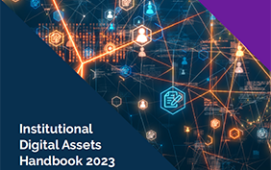The Depository Trust & Clearing Corporation (DTCC) is establishing a link between its Loan/SERV Reconciliation Service and Markit’s Wall Street Office (WSO) loan management system. The two vendors are working together to establish the link, which they claim will facilitate the automation of syndicated loan reconciliation and thus reduce the operational risk involved in the process.
To this end, the service will aim to allow agent banks and lenders to view and reconcile loan positions on a daily basis. Markit will provide WSO customers with a loan position file for upload to DTCC and this file will enable them to access the Loan/SERV Reconciliation Service and compare their loan positions with those of the agent banks. Transactions and balances that do not match will be highlighted so both parties can correct differences, explains Joe Widner, managing director of Markit.
“This will help rectify discrepancies, promote accurate reporting, including profit and loss figures, and enable our clients to manage their businesses more effectively,” claims Widner.
Chris Childs, DTCC vice president of Global Loans Product Management, adds: “With this service, DTCC and Markit are helping to lay the groundwork for change in the market, eliminating an inefficient manual process and replacing it with a streamlined, automated solution.”
Markit WSO currently provides institutional investors with a range of services for managing loan portfolios, including an accounting system for recording loan trades and principal and interest payments, as well as real-time data and pricing on global syndicated loans. DTCC’s Reconciliation Service, on the other hand, provides information on approximately 65,000 loan positions that customers can access via the web or file upload.
Pierre Batrouni, managing director of operations at MJX Asset Management and a Markit WSO customer, hopes the enhancement will provide major benefits: “Having daily checks on our investments will enable us to make corrections quickly and easily, dramatically boosting efficiencies and giving us more time to focus on our clients and their needs.”
DTCC announced earlier this year that it has adopted Markit’s new entity identifier system (MEIs) for loans reconciled by Loan/SERV. According to the vendor, the collaboration is aimed at reducing operational risks within the processing of syndicated loans by the introduction of standard, unique entity identifiers.
Subscribe to our newsletter




